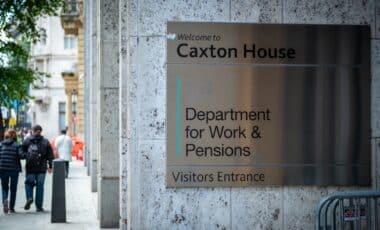As retirement nears, many people focus on ensuring they have adequate savings, but one crucial component often goes unnoticed: the State Pension. For individuals born after 1951, the Department for Work and Pensions (DWP) has issued an urgent reminder to verify their eligibility for a higher pension. The changes introduced under the new State Pension system mean that some retirees may not be receiving their full entitlement due to gaps in their National Insurance (NI) contribution records.
Recent surveys reveal that a significant proportion of pensioners lack awareness of how their NI contributions affect their pensions. Moreover, many are unaware they can take steps to fill gaps in their records, potentially unlocking thousands of pounds in additional retirement income. By acting now, pensioners can avoid financial shortfalls and secure the pension they deserve.
Why the DWP is Reaching Out to Pensioners
The UK government, through the Department for Work and Pensions (DWP), is calling on pensioners born after 1951 to verify their eligibility for the new State Pension system. This appeal comes amid increasing awareness that gaps in National Insurance (NI) contributions can significantly reduce pension entitlements. By taking proactive steps to check and address these gaps, retirees can potentially secure a better financial future.
The Basics of the State Pension System
The State Pension in the UK is divided into two types:
- The Basic State Pension, applicable to individuals born before 6 April 1951 for men and before 6 April 1953 for women.
- The New State Pension, which applies to men born on or after 6 April 1951 and women born on or after 6 April 1953.
Eligibility for the new system requires at least 10 qualifying years of National Insurance contributions. These contributions can be accrued through employment, voluntary payments, or credits received under specific circumstances such as unemployment, illness, or caregiving responsibilities.
Qualifying Years and their Importance
A “qualifying year” represents a period during which sufficient National Insurance contributions were made. To achieve the full new State Pension, a total of 35 qualifying years is required. Pensioners with fewer than 10 years will not be entitled to any State Pension under the new system, highlighting the critical need to ensure contribution records are complete.
For those who fall short of the required years, there is an option to fill gaps by making voluntary NI contributions. This option is particularly beneficial for individuals who spent time outside the workforce or lived abroad.
Addressing Gaps in National Insurance Contributions
A key component of the DWP’s message is the importance of reviewing and addressing gaps in National Insurance records. Missing contributions can arise for several reasons, including:
- Time taken off work for caregiving or health issues.
- Employment in low-income roles that did not meet the contribution threshold.
- Periods spent living or working abroad.
The UK government offers an online State Pension forecast tool that allows individuals to examine their contribution history and identify missing years. By addressing these discrepancies early, retirees can improve their overall pension entitlement.
How to Make Voluntary Contributions
Voluntary contributions, known as Class 3 National Insurance payments, are a viable option for filling gaps in contribution records. While these payments incur a cost, they can prove a valuable investment, especially for those close to reaching the required qualifying years.
The process of making these payments involves:
- Checking the National Insurance record via the government’s online portal.
- Identifying specific years where gaps exist.
- Contacting HMRC to arrange payment for these missing contributions.
Why Timing is Essential
The DWP emphasises the importance of checking pension records well in advance of retirement age. The current State Pension age in the UK is 66, but this is set to rise to 67 by 2028, with further increases likely in subsequent years. Addressing gaps early ensures retirees can take full advantage of their pension entitlements when they reach retirement age.
The Role of Agreements for Overseas Workers
For individuals who have worked abroad, the situation may be more complex. The UK has social security agreements with certain countries, allowing contributions made overseas to count towards UK pension entitlements. It is advisable for such individuals to explore these agreements and determine how they may affect their eligibility.
Key Considerations for Self-Employed Workers
Self-employed individuals are also eligible for the State Pension, provided they have made the required contributions. These workers typically pay Class 2 National Insurance, which counts towards qualifying years. However, inconsistencies in contributions due to irregular income may necessitate a review of their NI record.
Taking Action Today
The DWP’s call to action is clear: individuals approaching retirement should proactively assess their pension status. By checking contribution records, filling gaps, and understanding eligibility criteria, retirees can significantly enhance their financial security.
Practical Steps to Get Started
- Access the Pension Forecast Tool: Visit the UK government website to review your current pension forecast and contribution history.
- Identify Gaps: Determine where qualifying years are missing.
- Contact HMRC: Arrange voluntary contributions or discuss potential credits.
- Monitor Retirement Planning: Keep track of any changes to the State Pension system and plan accordingly.
The Bigger Picture
While the new State Pension system offers opportunities for individuals to secure a better retirement, it also underscores the importance of personal responsibility. Many retirees are unaware of the options available to increase their pension amounts, often due to a lack of understanding or insufficient guidance. The DWP’s initiative aims to bridge this gap, empowering pensioners to make informed decisions about their financial futures.









